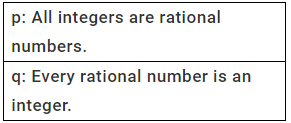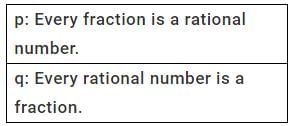Important Questions: Rational Numbers - Class 7 MCQ
20 Questions MCQ Test - Important Questions: Rational Numbers
Which of the following is not a rational number(s)?
| 1 Crore+ students have signed up on EduRev. Have you? Download the App |

Which of the following statements is correct?

Which among the following is a rational number equivalent to 5/3?
Which is the correct descending order of −2, 4/−5, −11/20, 3/4?
What is the average of the two middle rational numbers if 4/7,1/3,2/5 and 5/9 are arranged in ascending order?
What is the percentage of the least number in the greatest number of 3/5,9/5,1/5 and 7/5 ?
What is the difference between the greatest and least numbers of 5/9,1/9 and 11/9 ?
Which of the following pairs represent the same rational number?
Of which property is −7/5 + (2/−11 + −13/25) = (−7/5 + 2/−11) + −13/25 an example?
Which of the following statements is correct?
The sum of two rational numbers is −3. If one of the numbers is −7/5, find the other number.
Which of the following is a rational number?
Which of the following statements correctly defines a rational number?



 = 43/90
= 43/90















